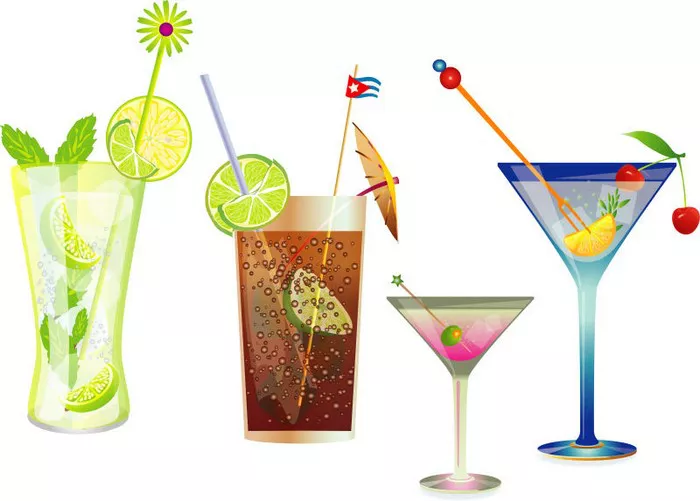In the realm of beverages, the term “virgin” carries a distinct connotation, one that has evolved over time to signify a particular category of drinks. Originating from its association with cocktails, where “virgin” denotes a non-alcoholic rendition of a classic mixed drink, the term has grown beyond mere abstinence from alcohol to encompass creativity, health consciousness, and inclusivity in modern beverage culture.
Understanding the Origins: The Birth of “Virgin” Drinks
The term “virgin” in the context of beverages traces its roots back to the world of cocktails. Historically, a “virgin” drink referred specifically to a cocktail without any alcohol—a nod to the purity of its ingredients, free from spirits that defined traditional mixed drinks. This distinction emerged as a response to the growing demand for non-alcoholic alternatives, catering to individuals who preferred not to consume alcohol for various reasons.
As the concept gained popularity, particularly during periods of social change and health-conscious trends, bars and restaurants began to feature dedicated sections on their menus for “virgin” cocktails. These offerings mirrored their alcoholic counterparts in flavor and presentation but provided a guilt-free option for patrons seeking sobriety or simply abstaining from alcohol temporarily.
The Evolution of “Virgin” Beyond Mocktails: Embracing Diversity and Innovation
In recent years, the meaning of “virgin” in beverages has transcended its original definition of alcohol-free cocktails. Today, the term encompasses a broader spectrum of drinks that celebrate creativity, flavor complexity, and nutritional benefits without the need for alcohol. This evolution has been driven by a heightened awareness of health and wellness among consumers, prompting a surge in demand for innovative non-alcoholic options that are anything but ordinary.
In the realm of mixology, bartenders and beverage innovators have embraced the challenge of crafting “virgin” drinks that rival their alcoholic counterparts in taste and appeal. From intricate fruit-infused concoctions to elaborate botanical blends, these beverages are designed to tantalize the senses and cater to a diverse audience that includes non-drinkers, designated drivers, and health enthusiasts alike.
See Also: What are the 6 classic cocktails?
The Rise of Health Consciousness: The Appeal of “Virgin” Options
One of the defining characteristics of “virgin” beverages today is their alignment with health and wellness trends. As consumers become increasingly mindful of their dietary choices, the demand for drinks that offer nutritional benefits without compromising on flavor has surged. This has led to the emergence of “virgin” cocktails enriched with superfoods, antioxidants, and natural sweeteners, catering to a health-conscious demographic seeking alternatives to sugary sodas and artificial beverages.
Moreover, the concept of “virgin” extends beyond individual health choices to encompass societal trends towards sustainability and ethical consumption. Many consumers opt for non-alcoholic beverages as part of a broader commitment to reducing their environmental impact and supporting responsible sourcing practices within the beverage industry.
Cultural Implications: “Virgin” Beverages in Social Settings
In social settings, the availability and quality of “virgin” drinks have become pivotal in ensuring inclusivity and enjoyment for all guests. Whether at weddings, corporate events, or casual gatherings, hosts are increasingly mindful of offering a diverse selection of beverages that cater to varying preferences and dietary restrictions. The presence of thoughtfully crafted “virgin” options ensures that non-drinkers can participate fully in celebrations without feeling sidelined or obligated to compromise their personal choices.
Furthermore, the cultural significance of “virgin” beverages extends beyond individual preferences to reflect broader shifts in social norms and attitudes towards alcohol consumption. In contexts where moderation and sobriety are valued, such as fitness retreats, wellness spas, and religious gatherings, the availability of premium “virgin” cocktails underscores a commitment to hospitality that respects diverse lifestyles and preferences.
Innovative Ingredients and Techniques: Redefining the “Virgin” Experience
The evolution of “virgin” beverages has been marked by a wave of experimentation with ingredients and techniques traditionally associated with mixology. From cold-pressed juices and artisanal syrups to house-made bitters and infused waters, bartenders and beverage professionals are pushing the boundaries of flavor profiles and presentation to elevate the “virgin” drinking experience.
This innovation is not merely about substituting alcohol with non-alcoholic alternatives but rather reimagining the very essence of what a “virgin” drink can be. It involves harnessing seasonal ingredients, exploring regional flavors, and incorporating cultural influences to create beverages that are both distinctive and memorable. By embracing this creative approach, the beverage industry continues to expand its repertoire of “virgin” offerings, appealing to a discerning audience that values quality, craftsmanship, and the joy of discovery.
The Future of “Virgin” Beverages: Trends and Projections
Looking ahead, the future of “virgin” beverages appears poised for continued growth and diversification. As consumer preferences evolve and societal norms shift, the demand for innovative non-alcoholic options is expected to expand across global markets. This trend is driven by a convergence of factors, including rising health consciousness, increased awareness of alcohol’s effects, and a growing appreciation for inclusive hospitality practices.
Moreover, advancements in technology and culinary techniques are likely to play a pivotal role in shaping the next generation of “virgin” drinks. From molecular mixology and flavor extraction methods to sustainable sourcing and packaging innovations, beverage professionals are poised to redefine the boundaries of what is possible in non-alcoholic beverage creation.
In Conclusion
The term “virgin” in beverages has evolved far beyond its origins to encompass a dynamic category that celebrates creativity, health consciousness, and inclusivity. From its humble beginnings as a simple alternative to alcoholic cocktails, “virgin” drinks have become a canvas for innovation and culinary artistry, catering to a diverse audience seeking memorable and satisfying drinking experiences. As consumer preferences continue to evolve, so too will the landscape of “virgin” beverages, offering endless possibilities for exploration and enjoyment in the vibrant world of drink culture.


